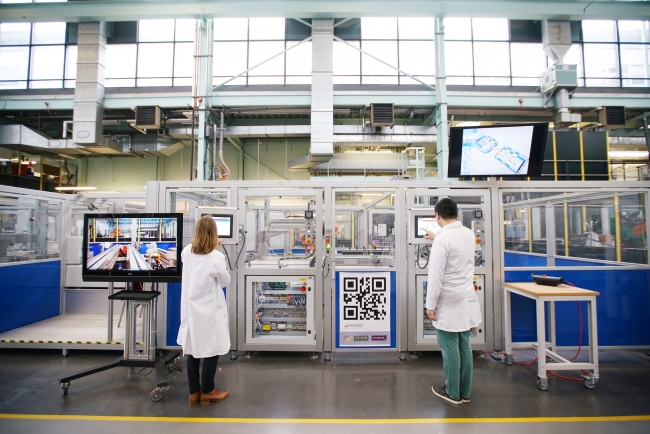2 minute read • published in partnership with HVM Catapult
Insight: Does digital manufacturing matter?
Advances in digital technology are already making a significant impact on UK manufacturing. According to the independent ‘Made Smarter Review (2017)’, it’s estimated that the positive impact of faster innovation and adoption of innovative digital technologies could unlock over £455 billion for UK manufacturing over the next decade and create over 175,000 jobs. Professor Robert Harrison (Professor of Automation Systems at WMG – part of the High Value Manufacturing Catapult), explores whether we are really experiencing a fourth industrial revolution.
It’s important for all manufacturing companies to assess their ability to make their product for the right cost and with the right consistent quality and ask whether any of the latest manufacturing technologies could help them to do that.
Often labelled as the fourth industrial revolution or Industry 4.0, the integration of the latest digital technologies in manufacturing, offers a range of benefits. These include quality improvements, an increase in cost effectiveness, higher productivity, more consistency and greater flexibility.

Understanding which stage of the journey a company might need to focus on to start off with, could be the first important step towards digital transformation / Picture: WMG/HVM Catapult
It’s difficult to say whether we are really in the midst of another industrial revolution or just a very rapid evolution. From the early industries, business people have measured performance, so that they can improve. As we acquired the ability to measure multiple aspects of a business, we realised that if we could measure, we could monitor performance at all levels, and if we could measure performance, we could seek to improve it.
So, what we are seeing now is an unprecedented and accelerated pace of change within digital manufacturing. This is down to the availability of more powerful computers, cheaper and larger data storage solutions, faster and more reliable connectivity and cheaper and more accurate sensors.
As companies integrate digital manufacturing technologies, there are a number of stages that they can focus on in their journey. Manufacturers could find themselves at any stage of this journey depending on where the most pressing problem is thought to be.
These stages include digitally modelling an individual piece of kit in a factory to assess levels of efficiency and the creation of ‘digital twins’. (A digital twin is the digital simulation of a piece of kit in a factory or a manufacturing process). Another stage is joining individual pieces of kit up to look at the way the entire factory performs.
It’s not possible for many manufacturers to introduce digital technologies on a grand scale straight away but understanding which stage of the journey a company might need to focus on to start off with could be the first important step towards digital transformation.
Interested in digital manufacturing? Come talk to the High Value Manufacturing Catapult at the Smart Factory Expo, 13th-14th November. Book your place here
